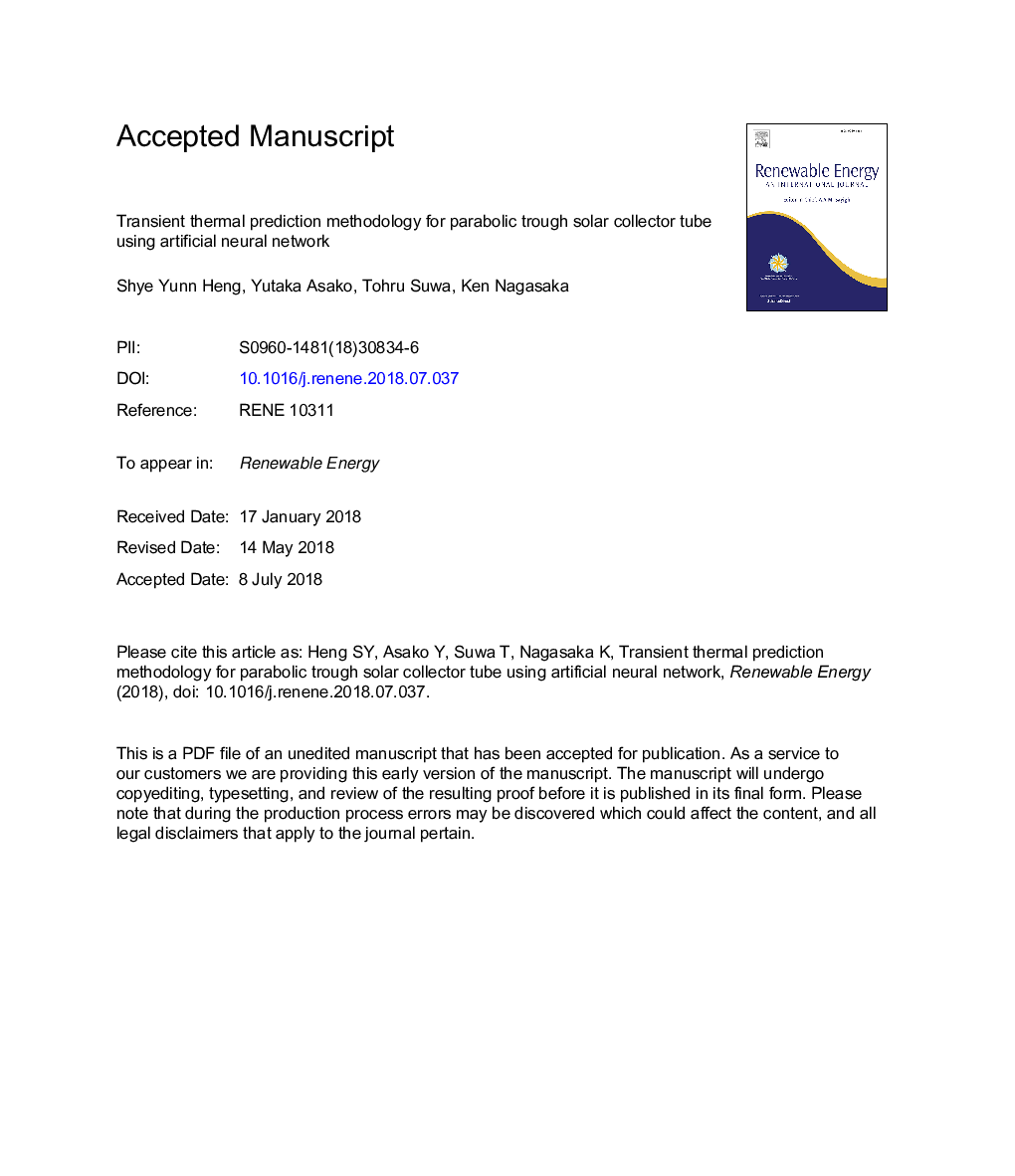| Article ID | Journal | Published Year | Pages | File Type |
|---|---|---|---|---|
| 6763613 | Renewable Energy | 2019 | 29 Pages |
Abstract
The solar radiation fluctuation occurs at practically anywhere on the earth. When a solar thermal power generation system is designed for the areas with considerable solar radiation fluctuation, the collector tube exit temperature becomes more difficult to predict and requires significant calculation time. This paper presents a fast and accurate transient thermal prediction method to predict the parabolic trough collector tube exit temperature. In this work, an artificial neural network (ANN) is combined with the principle of superposition. ANN is used to predict the exit temperature rise caused by a single heat flux pulse in the first step of the proposed methodology, while superposition is used to predict the from multiple heat flux pulses in the second step. Limited cases of conjugate heat transfer analytical results by the finite element method (FEM) are used to train the ANN. The one-day exit fluid temperature from 7 a.m. to 6 p.m. is predicted within 1â¯min of computational time with mean absolute deviation less than 2â¯K. The exit fluid temperature of the collector tube for one year operation can be predicted in less than 6â¯h. Because fluid velocity is included in the input parameters, the proposed methodology is especially useful for flow control simulations where a constant exit temperature is targeted. Through this, the optimum performance of collector tube under multiple radiation conditions can be assessed during an early design phase of parabolic solar trough systems. The predicted results can be used for initial system planning, heat balance analysis, and system design. Since the method shows good prediction capability under the fluctuating solar radiation as well as the stable solar radiation, it is applicable to be used for designing the parabolic trough technology at any weather conditions in the world.
Related Topics
Physical Sciences and Engineering
Energy
Renewable Energy, Sustainability and the Environment
Authors
Shye Yunn Heng, Yutaka Asako, Tohru Suwa, Ken Nagasaka,
